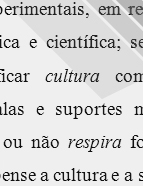

................................
As summarised aptly, the history of culture, as methodically understood and constructed by Carvalho (Bildung), would only be possible in the broadest philosophical vision that disciplined the various fields of knowledge in a hermeneutic rationality – from the history of science to the history of literature and the history of philosophy – and hence the demanding instance that constituted a historiography to which the sectorial responses of the various fields of knowledge were essential but thus, per se, insufficient. The vast erudition, in the documental and bibliological manner of J. P. Ribeiro and Herculano, the confirmation of the philological contribution, in the heritage of Carolina Michaëllis, the lesson of sources and their meticulous examination in the vein of the methodical school, the critical sagesse, the self-constructive episteme, if knowledge is human creation and invention, made Carvalho the university representative of a quality then on the verge of extinction in schools – that of the clerc, a scholar who does not sacrifice himself on the public altar to politique d’abord and who carries the independence of mind and ethics against the various winds of totalitarianism and dictatorial tides that ravaged Europe post 1917-1922. An undeniable pioneer of the History of Ideas, by creating the confederation of cultural studies under the historiographical aegis and reinforcing the philosophical basis that underpins thought, Carvalho called for the correlational and global episteme for the phenomenology of culture without which any effort would be piecemeal and partial. Under his influence in Coimbra, and regardless thereof, the essayism of E. Lourenço and the teachings of Sílvio Lima were nourished; in Theory of History, the latter would testify to the relational and rational aptitude of interpretation, in his capacity as a translator of a "mental architecture" (Hegel). Without expelling analytical idealism, Lima conditions the knowledge of the "past" to the projective mediations of a Diltheyan historical reason in which "historical" is already the restricted field that allows for the apprehension of the spirit, self-knowledge of reason investigated in the domain of the history of ideas, as much as the very ground where raisonner, the process of thoughts, is legitimised in its inventive intelligence, thus subtracted from the substantialisation of culture – and from culturalisms of diverse kinds that converged in the shadow of repressive tutelage (Á. Ribeiro, A. Quadros, A. J. Brito) – and rejecting its abusive reification. A creator of profound pages of an original and innovative history of ideas, a major case being O Amor Místico [Mystic Love], an exegesis that establishes connections between the history of religions with psychoanalysis and the comprehensive and hermeneutic lesson, he did not explore it methodically to instead theoretically formulate the analytical model.
